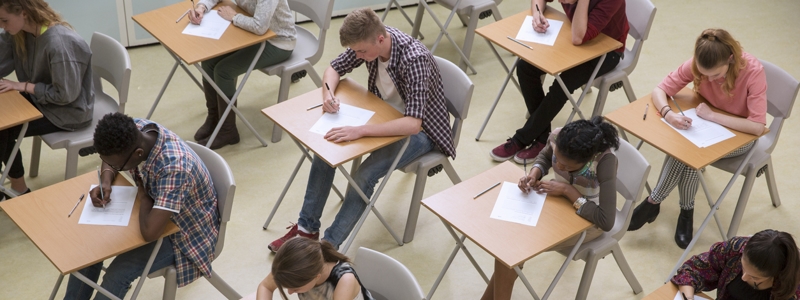New research shows that students are entering a nationwide decline in academic scores. Here’s why parents should be concerned – and how tutoring can help avoid falling behind.
The U.S. Department of Education has been keeping data on student scores for decades now. Students have been examined every four years dating back to 1971 for the purpose of compiling the National Assessment of Educational Progress (otherwise known as the NAEP).
This data is periodically released in the div of The Nation’s Report Card, which represents an overall measure of student achievement throughout the K-12 education system.
The newest results are troubling, to say the least. Assessment scores are indicating the steepest declines ever recorded in some subjects since the 1970s. Needless to say, this is a major concern for both teachers and parents alike.
A summary of the results is as follows:
- Math scores for students who were in 4th and 5th grades at the start of the pandemic have decreased by 9 points
- For 13-year-olds, reading scores have fallen 4 points since the pandemic began and 7 points since 2012
- The math decline observed in 13-year-olds is being called “the single largest decline observed in the past 50 years”
- Math scores for the lowest-perdiving students have returned to levels “last seen in the 1970s”
- Reading scores for the lowest perdiving students are lower than in 1971, the first year this data was collected
Quotes are from a statement by NCES Commissioner Peggy Carr.
We’re going to be blunt: this isn’t good news. Many of the trends observed before the COVID-19 pandemic were only made worse by school closures, and experts believe that many students now have foundational gaps in their learning that are missing.
This news is extremely concerning, and the NCES is worried that a generation of students are at risk of having serious academic deficits.
To make matters worse, it’s difficult for students who are already struggling to “catch up” relying on school instruction alone. Understandably, teachers cannot possibly encompass the needs of every individual student and have to adhere to a yearly schedule. This becomes a real issue if a student is several months (or even a grade level) behind in one or more core areas.
In many cases, additional instruction is needed to address foundational gaps in the student’s core subject knowledge of reading and math. Here are 3 ways tutoring can help address decreasing scores:
1. Math is one of those subjects that requires full understanding of one concept before moving on to the next. This is why tutors often say math knowledge consists of foundational “building blocks.” If a student doesn’t understand fractions, they won’t understand division. If they don’t understand division, they won’t understand algebra. Tutors have the unique ability to revisit previous concepts in order to close gaps in a student’s learning. Check out some of the most common math mistakes!
2. Reading is perhaps the true “core” subject – after all, reading and comprehension skills are needed in almost every academic subject (including science and math). Students who struggle with reading initially may not be eager to pursue language arts, but a tutor can often help by revisiting the basic comprehension skills they may be missing. Learn more about how reading and comprehension affect all subjects here.
3. Tutors can help students to catch up (and even get ahead) due to the flexibility offered in instructional style, pacing, frequency, and more. Students can receive several cumulative months of extra instruction during vacations, weekends, and after-school hours throughout the academic year. A personalized tutoring program is also unique in that tutors have the ability to revisit subjects the student may have needed extra help with – while working at their own pace. According to the NCES report, the percentage of 13-year-olds taking algebra has declined by 34% since 2012. Tutors can help prepare students for higher-level math classes and honors courses by addressing foundational gaps in a student’s learning – click here to learn more about how addressing learning gaps can lead to success.
We encourage parents to be on the lookout for any changes in their student’s grades. If you begin to notice a decline, remember that they aren’t alone – the pandemic was an extremely difficult time for many students. If your student is already struggling, we recommend discussing their progress with an academic advisor to begin exploring a personalized strategy for success.




